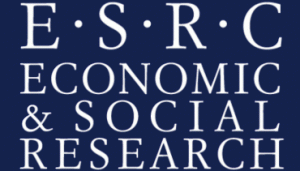ESRC New Investigator Grants

- Opportunity status: Open
- Funders: Economic and Social Research Council (ESRC)
- Funding type: Grant
- Award range: £100,000 - £350,000
- Publication date: 29 September 2023
- Opening date: 29 September 2023 9:00am UK time
- Closing date: Open - no closing date
Last updated: 8 May 2025 - see all updates
This opportunity supports researchers at the start of their careers to enable their transition to become independent researchers through gaining experience of managing and leading research projects and teams.
It also provides an opportunity for them to support their own skill development, and that of any research staff employed on the grant.
You must be based at a UK research organisation eligible for ESRC funding.
Proposals can draw from the wider sciences, but the social sciences must represent more than 50% of the research focus and effort.
The full economic cost (FEC) of your project can range from £100,000 to £350,000. ESRC will fund 80% of the FEC.
Update: Applications submitted from 1 April 2024 will be able to apply for up to £350,000 at 100% FEC. ESRC will fund 80% of the FEC. This change to the award range closes the gap between the new investigator grant scheme and the standard grant scheme.
Who can apply
Before applying for funding, check the Eligibility of your organisation.
UK Research and Innovation (UKRI) has introduced new role types for funding opportunities being run on the new UKRI Funding Service.
For full details, visit Eligibility as an individual.
Who is eligible to apply
This opportunity is for early career researchers. As part of your application, you must articulate why you should be considered an early career researcher and how the award of a new investigator grant will have a demonstrable impact on your trajectory to becoming an independent researcher.
The ‘new investigator’ must be the project lead who submits the application. The project lead for this funding opportunity can be:
- from anywhere in the world
- with or without a permanent academic post
However, you must be based at an organisation eligible for ESRC funding for the duration of the grant.
Project co-leads are permitted on this opportunity and encouraged for interdisciplinary applications or where a project co-lead would provide specific technical expertise that is essential to the project. However, it must be clear that the project lead is responsible for leading the project.
See the ESRC research funding guide for further information on eligibility and associated costs that can be included on ESRC grants.
Who is not eligible to apply
You cannot apply for funding if:
- you are not an early career researcher
- you already hold a professorship
- you are a current or former project lead on ESRC or other UKRI research grants, except ESRC postdoctoral fellowships
Please note, while you can apply for a new investigator grant at the same time as applying to other UKRI opportunities, if you are successful with more than one application you will need to choose which of the awards you want to hold. This includes the UKRI Future Leaders Fellowships.
International applicants
Project leads from non-UK organisations are not eligible to apply for funding for this opportunity.
Project co-leads based in non-UK research organisations can be included in research grant applications. Read the project co-lead (international) policy guidance for details of eligible organisations and costs.
Business, third sector or government body project co-leads
Business, third sector or government body project co-leads based in the UK can also be included on research grant proposals as a project co-lead. Read Including project co-leads from business, third sector or government bodies for details of eligible organisations and costs.
Resubmissions
We will not accept uninvited resubmissions of projects that have been submitted to UKRI.
Find out more about ESRC’s resubmissions policy.
Equality, diversity and inclusion
We are committed to achieving equality of opportunity for all funding applicants. We encourage applications from a diverse range of researchers.
We support people to work in a way that suits their personal circumstances. This includes:
- career breaks
- support for people with caring responsibilities
- flexible working
- alternative working patterns
Find out more about equality, diversity and inclusion at UKRI.
Remit
Complete and submit the remit query form, if you are unsure whether your proposed research falls within the remit of ESRC.
What we're looking for
Scope
New investigator grants will support new researchers and academics at the start of their careers to become independent researchers through gaining experience of managing and leading projects and teams.
In addition, they will provide applicants with an opportunity not only to support their own skill development, but also the skill development of research staff employed on the grant.
Applications can be for a range of activities such as standard research projects, surveys and other infrastructure projects and methodological developments.
Proposals can draw from the wider sciences, as long as the social sciences are more than 50% of the focus and effort. For a full list of ESRC disciplines, or if you are unsure whether your project is suitable for ESRC funding, please check the eligibility of your proposal.
The early career researcher must be the project lead on the application and must articulate how an award would have a demonstrable impact on their career progression to becoming an independent researcher.
New investigator grants are designed to allow early career researchers to gain experience of research leadership and management and to formulate their plans for their research careers.
While the configuration of the team should be informed by the proposed project, we expect that by the end of these awards the new investigator will be able to demonstrate their ability to lead research projects and teams. You will need to carefully consider how you can demonstrate your ability to manage people either through employing research staff on your award or from other relevant experience.
Duration
The duration of this award is up to five years (60 months).
Funding available
The FEC of your project can range from £100,000 to £350,000.
ESRC will fund 80% of the FEC.
What we will fund
Funding can support:
- standard research projects
- methodological development
- large-scale surveys or other infrastructures (for example, linguistic corpora or the classification, cataloguing and compilation of information which would be of benefit to social science researchers and a possible wider audience)
What we will not fund
Applications cannot be accepted under this funding opportunity solely for:
- unspecified research work
- research already carried out
- writing up previous research
- literature surveys
- general conference attendance, not related to this project
- travel for general study
- expeditions
- requests to hold conferences, workshops or seminars where these constitute the primary project component
- preparation of books and publications
- preparation and production of materials such as curriculum materials and software development where these constitute the primary project component
Associated studentships cannot be funded under this funding opportunity.
Contributions of the host research organisation
In submitting the application, the research organisation is demonstrating its commitment to supporting an individual researcher’s transition to the next stage of their research career. We expect to see only a limited number of applications from a single research organisation and organisations must have a process in place to support this. Beyond the standard support offered by a research organisation to an ESRC grant holder, we expect the following two aspects to be carefully considered by the proposed host organisation in supporting a new investigator application:
Provision of a mentor
All applicants are required to have a named mentor based at the research organisation where the grant is to be held who will be the primary mentor for the project lead. The proposed mentor should be of high academic standing and have a strong interest in the applicant’s field of research but should not normally be the applicant’s former PhD supervisor. The mentor should also be able to offer the applicant advice and assistance in developing their application, building suitable links with leading researchers in their field, as well as with potential beneficiaries and users of the applicant’s research.
If it is not possible to find a mentor with all the suitable knowledge within the project lead’s organisation, a second mentor may be appointed for this purpose from another organisation. Project leads may also want to consider having more than one mentor where their research is on the borderline between social sciences and other disciplinary areas or where an extended period at an overseas RO is planned.
The need for more than one mentor should be clearly articulated in the proposal.
The role of the mentor is to support the work of the grant holder, both scientific and non-scientific, but the mentor will not be directly involved in running the project. Regular contact must be maintained between the grant holder and mentor through the course of the project, and the mentor will help the grant holder to review progress against agreed milestones, including the implementation of the training and development programme.
Costs for mentoring time cannot be claimed as part of these grants; they must be met as part of the host institution’s contribution to the award.
Provision of career development support
The application must include a programme of research and skills development to ensure the applicant’s continued progression towards being an independent researcher. The programme must be tailored to the individual needs of the applicant considering their research and career goals in consultation between the applicant, their mentor and the host organisation.
It is likely that a programme of training and development activities will include aspects of project management, research methods development, knowledge exchange and user engagement, impact, national and international networking and research development.
You must also demonstrate how you will identify, address, and monitor the training needs of any staff employed on the grant.
Highlight notice
There is currently a highlight notice in operation for this funding opportunity, which means in addition to activity from any disciplines and on any topics in ESRC’s remit, we particularly welcome applications in the area of artificial intelligence (AI) for social science.
The purpose of the highlight notice is purely to stimulate applications in a particular area. Applications submitted under the highlight notice will be assessed in the same way as (and alongside) other applications submitted to this funding opportunity using the standard responsive mode assessment criteria. There is no additional or ring-fenced funding for highlight applications, and applicants are not required to identify their application as being in the area of the highlight notice.
AI for social science
AI technologies can provide solutions to many challenges that we face, from detecting fraud to tackling misinformation and diagnosing illness. Advances in AI are opening new research frontiers in economics and social science. The rapid expansion in tasks that can be performed by machine-learning is enhancing capability for analysis of vast quantities of data, including new forms of data, yielding new insights about society, behaviour and the economy.
ESRC invites applications under this highlight notice that focus on the innovative use of AI-powered research tools to address a real-world social or economic issue. Specifically, we welcome applications that harness cutting-edge developments in areas such as deep learning, neural networks, and generative AI to build on conventional research methods.
Areas of application where ESRC has a strategic interest include:
- digital trace or smart data
- modelling complex economic and social systems
- AI-driven evidence synthesis
You are encouraged to leverage existing research infrastructure (for example, ADR UK, Smart Data Research UK, Centre for Longitudinal Studies, Understanding Society, UK Data Service) where relevant, to unlock the transformative potential of AI.
Applicants proposing to use administrative datasets are encouraged to contact the ADR UK Strategic Hub to discuss the feasibility of their proposed approach: hub@adruk.org
ESRC is using the definition of AI set out in the UK Science and Technology Framework: ‘machines that perform tasks normally performed by human intelligence, especially when the machines learn from data how to do those tasks’. See the UK Science and Technology Framework.
UK Research and Innovation (UKRI) recognises the strategic importance to the UK of the critical technologies set out in the UK Science and Technology Framework. This highlight notice on AI is part of a cross-UKRI initiative to encourage applications to responsive mode funding opportunities that are associated with the advancement, development, and deployment of these technologies.
This highlight notice was announced in April 2024.
ESRC will give notice before closing this highlight notice opportunity.
Supporting skills and talent
We will be looking for evidence of a strong commitment to supporting the development of researchers at all stages of their career. We encourage you to follow the principles of the Concordat to Support the Career Development of Researchers and the Technician Commitment.
We expect this to include a strong career development programme, shaped to suit the stage of the researchers’ career and providing increased opportunities for professional development. This should include, but not be limited to, the early career stage. Increasing capacity contributes to the quality and impact of the research. We encourage you to consider how you can support capacity building for all members of the project team.
Applicants to the new investigator grants scheme must include a programme of skill development for themselves and consider how they can support the career development of those employed on the grant.
International collaboration
If your application includes international applicants, project partners or collaborators, visit UKRI’s trusted research and innovation for more information on effective international collaboration.
Find out about getting funding for international collaboration.
ESRC data infrastructure
ESRC supports a range of data infrastructure. Where relevant, we encourage applicants to consider whether the use of these resources could add value to the project. See facilities and resources for information on finding and using ESRC datasets which are available across the UK.
Where relevant, details of datasets and infrastructure to be used in your project should be given in the Facilities section.
Data requirements
ESRC recognises the importance of data quality and provenance. Data generated by ESRC-funded research must be well-managed by the grant holder to enable their data to be exploited to the maximum potential for further research. See our research data policy for details and further information on data requirements. The requirements of the research data policy are a condition of ESRC research funding.
Where relevant, details on data management and sharing should be provided in the Data management and sharing section. See the importance of managing and sharing data and content for inclusion in a data management plan on the UK Data Service (UKDS) website for further guidance. We expect applicants to provide a summary of the points provided. The UKDS will be pleased to advise applicants on the availability of data within the academic community and provide advice on data deposit requirements. Email: datasharing@ukdataservice.ac.uk
Impact, innovation and interdisciplinarity
We expect applicants to consider the potential scientific, societal and economic impacts of their research. Outputs, dissemination and impact are a key part of the criteria for most peer review and assessment processes. We also encourage applications that demonstrate innovation and interdisciplinarity (research combining approaches from more than one discipline).
Knowledge exchange and collaboration
We are committed to knowledge exchange and encouraging collaboration between researchers and the private, public and civil society sectors. Collaborative working benefits both the researchers and the individuals/organisations involved. Through collaboration, partners learn about each other’s expertise, share knowledge and gain an appreciation of different professional cultures. Collaborative activity can therefore lead to a better understanding of the ways that academic research can add value and offer insights to key issues of concern for policy and practice.
Knowledge exchange should not be treated as an ‘add-on’ at the end of a project but considered before the start and built into a project.
Equitable partnership principles
When undertaking research and innovation activities outside the UK, you must recognise and address the possible impact of contextual, societal and cultural differences on the ethical conduct of those activities.
You should also follow the principles of equitable partnerships to address inherent power imbalances when working with partners in resource-poor settings.
Applying the principles will encourage equitable access, especially in low and middle-income countries (LMICs), while maintaining incentives for innovation. You should consider the principles from the start of the research and development cycle.
Read UKRI’s guidance on research in a global setting.
Research ethics
ESRC requires that the research we support is designed and conducted in such a way that it meets ethical principles and is subject to proper professional and institutional oversight in terms of research governance. We have agreed a Framework for Research Ethics that all submitted proposals must comply with. Read further details about the Framework for Research Ethics and guidance on compliance.
[...]

